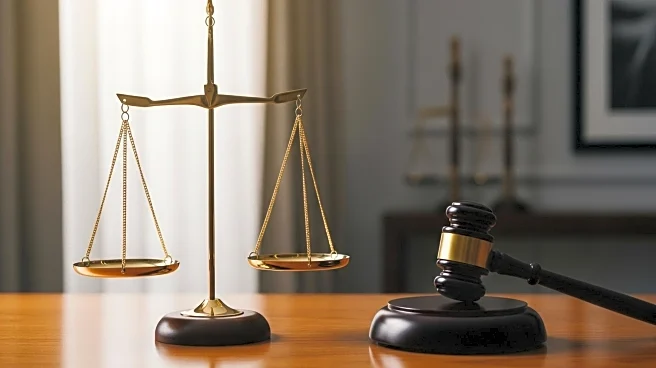What's Happening?
Kim Kardashian and Kris Jenner have filed a defamation lawsuit against R&B singer Ray J, following his public claims that they were under a federal RICO investigation. The lawsuit, filed on October 1, 2025, in Los Angeles Superior Court, alleges that Ray J's statements during a September 24 livestream were presented as factual and have caused reputational harm to the plaintiffs. This legal action marks the first defamation suit filed by Kardashian and Jenner, signaling a new strategy in addressing public allegations. The lawsuit has attracted significant media attention, with outlets like Variety and PEOPLE reporting on the case, highlighting the impact of viral social media claims on celebrity reputations.
Why It's Important?
The lawsuit underscores the growing trend of celebrities using defamation suits to counteract potentially damaging claims made on social media platforms. As public figures increasingly face reputational risks from viral content, this case could set a precedent for how defamation is addressed in the digital age. The legal action also raises questions about the accountability of individuals making public statements that can be perceived as factual. For media outlets and influencers, this development may lead to more cautious approaches in sharing unverified claims, potentially altering the landscape of celebrity news and social media interactions.
What's Next?
The lawsuit will proceed in the Los Angeles Superior Court, where the plaintiffs will need to demonstrate that Ray J's statements were false and caused reputational damage. The case may prompt other celebrities to consider similar legal actions when faced with defamatory claims. Additionally, media organizations might implement stricter fact-checking protocols to avoid legal repercussions. The outcome of this lawsuit could influence how public figures manage their reputations and how social media platforms handle potentially defamatory content.
Beyond the Headlines
This case highlights the ethical and legal challenges posed by the rapid dissemination of information on social media. It raises questions about the balance between free speech and the protection of individual reputations. As defamation suits become more common, there may be broader implications for how public discourse is conducted online, potentially leading to increased regulation or changes in platform policies to mitigate the spread of false information.










